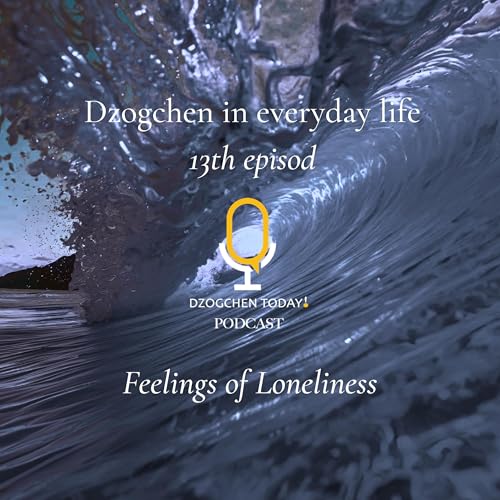
Dzogchen and the “relief” of emotions on a daily basis (13) : Feelings of Loneliness
No se pudo agregar al carrito
Add to Cart failed.
Error al Agregar a Lista de Deseos.
Error al eliminar de la lista de deseos.
Error al añadir a tu biblioteca
Error al seguir el podcast
Error al dejar de seguir el podcast
-
Narrado por:
-
De:
In this three-episode miniseries, we focus on a topic increasingly present in contemporary society: the feeling of loneliness. Throughout the series, we explore the many facets of loneliness through the lens of Dzogchen, aiming to understand its inner workings.
In this first episode, Mila Khyentse Rinpoche and Arnaud Buisson, a psychiatrist at the Pontarlier Hospital and a Dzogchen practitioner), discuss the suffering of solitude, its underlying mechanisms, and the differences between therapeutic meditation and the Dzogchen perspective.
Host: Marie-Laure
Notes
Dzogchen is a directly accessible tradition that can be practiced in a variety of ways in our daily lives, focusing on liberation from suffering and the means to achieve it. In this episode, we explore the suffering associated with the feeling of loneliness and the illusory nature of the emotions that compose it, with a short concentration practice offered by Mila Khyentse Rinpoche as a direct application.
Recap & Takeaways
Series Dzogchen and the “relief” of emotions on a daily basis: Episod 13 - Feeling of Loneliness
In this podcast Mila Khyentse Rinpoche and Arnaud Buisson talk about:
Loneliness vs the feeling of loneliness 2’50
Psychological and physical consequences 4’25
The mind, creator of the feeling of loneliness 6'
The Dzogchen perspective: from concept to direct experience 7’30
Emotions are illusory and do not define us : a first step to discover our true nature 9’30
Emptiness: the real nature of voidness 11’30
Arnaud Buisson’s testimony 14’45
Loneliness does not exist by itself: developing clarity to recognize it 18’15
Guided practice with Mila Khyentse Rinpoche: remaining in the experience : 21’
Conclusion: « If you want to be free: remain here and now »



